Fifteen years ago, the writings of globalist thinkers such as Kenichi Ohmae and Robert Reich celebrated the advent of the emergence of the so-called borderless world. The process by which relatively autonomous national economies become functionally integrated into one global economy was touted as “irreversible”. And the people who opposed globalization were disdainfully dismissed as modern-day incarnations of the Luddites that destroyed machines during the Industrial Revolution.
Fifteen years later, despite runaway shops and outsourcing, what passes for an international economy remains a collection of national economies. These economies are interdependent no doubt, but domestic factors still largely determine their dynamics.
Globalization, in fact, has reached its high-water mark and is receding.
During globalization’s heyday, we were told that state policies no longer mattered and that corporations would soon dwarf states. In fact, states still do matter. The European Union, the
Moreover, state policies that interfere with the market in order to build up industrial structures or protect employment still make a difference. Indeed, over the last ten years, interventionist government policies have spelled the difference between development and underdevelopment, prosperity and poverty.
Fifteen years ago, we were told to expect the emergence of a transnational capitalist elite that would manage the world economy. Indeed, globalization became the “grand strategy” of the
A decade ago, the World Trade Organization (WTO) was born, joining the World Bank and the International Monetary Fund (IMF) as the pillars of the system of international economic governance in the era of globalization. With a triumphalist air, officials of the three organizations meeting in
But now Sebastian Mallaby, the influential pro-globalization commentator of the Washington Post, complains that “trade liberalization has stalled, aid is less coherent than it should be, and the next financial conflagration will be managed by an injured fireman.” In fact, the situation is worse than he describes. The IMF is practically defunct. Knowing how the Fund precipitated and worsened the Asian financial crisis, more and more of the advanced developing countries are refusing to borrow from it or are paying ahead of schedule, with some declaring their intention never to borrow again. These include
The World Bank may seem to be in better health than the Fund. But having been central to the debacle of structural adjustment policies that left most developing and transitional economies that implemented them in greater poverty, with greater inequality, and in a state of stagnation, the Bank is also suffering a crisis of legitimacy.
But the crisis of multilateralism is perhaps most acute at the WTO. Last July, the Doha Round of global negotiations for more trade liberalization unraveled abruptly when talks among the so-called Group of Six broke down in acrimony over the
Why did globalization run aground? First of all, the case for globalization was oversold. The bulk of the production and sales of most TNCs continues to take place within the country or region of origin. There are only a handful of truly global corporations whose production and sales are dispersed relatively equally across regions.
Second, rather than forge a common, cooperative response to the global crises of overproduction, stagnation, and environmental ruin, national capitalist elites have competed with each other to shift the burden of adjustment. The Bush administration, for instance, has pushed a weak-dollar policy to promote
A third factor has been the corrosive effect of the double standards brazenly displayed by the hegemonic power, the
Fourth, there has been too much dissonance between the promise of globalization and free trade and the actual results of neoliberal policies, which have been more poverty, inequality, and stagnation. One of the very few places where poverty diminished over the last 15 years is
Another factor unraveling the globalist project is its obsession with economic growth. Indeed, unending growth is the centerpiece of globalization, the mainspring of its legitimacy. While a recent World Bank report continues to extol rapid growth as the key to expanding the global middle class, global warming, peak oil, and other environmental events are making it clear to people that the rates and patterns of growth that come with globalization are a surefire prescription for ecological Armageddon.
The final factor, not to be underestimated, has been popular resistance to globalization. The battles of Seattle in 1999, Prague in 2000, and Genoa in 2001; the massive global anti-war march on February 15, 2003, when the anti-globalization movement morphed into the global anti-war movement; the collapse of the WTO ministerial meeting in Cancun in 2003 and its near collapse in Hong Kong in 2005; the French and Dutch peoples’ rejection of the neoliberal, pro-globalization European Constitution in 2005 -- these were all critical junctures in a decade-long global struggle that has rolled back the neoliberal project. But these high-profile events were merely the tip of the iceberg, the summation of thousands of anti-neoliberal, anti-globalization struggles in thousands of communities throughout the world involving millions of peasants, workers, students, indigenous people, and many sectors of the middle class.
While corporate-driven globalization may be down, it is not out. Though discredited, many pro-globalization neoliberal policies remain in place in many economies, for lack of credible alternative policies in the eyes of technocrats. With talks dead-ended at the WTO, the big trading powers are emphasizing free trade agreements (FTAs) and economic partnership agreements (EPAs) with developing countries. These agreements are in many ways more dangerous than the multilateral negotiations at the WTO since they often require greater concessions in terms of market access and tighter enforcement of intellectual property rights.
However, things are no longer that easy for the corporations and trading powers. Doctrinaire neoliberals are being eased out of key positions, giving way to pragmatic technocrats who often subvert neoliberal policies in practice owing to popular pressure. When it comes to FTAs, the global south is becoming aware of the dangers and is beginning to resist. Key South American governments under pressure from their citizenries derailed the Free Trade Area of the Americas (FTAA) -- the grand plan of George W. Bush for the Western hemisphere -- during the Mar del Plata conference in November 2005.
Also, one of the reasons many people resisted Prime Minister Thaksin Shinawatra in the months before the recent coup in
The retreat from neoliberal globalization is most marked in
From today’s vantage point, globalization appears to have been not a new, higher phase in the development of capitalism but a response to the underlying structural crisis of this system of production. Fifteen years since it was trumpeted as the wave of the future, globalization seems to have been less a “brave new phase” of the capitalist adventure than a desperate effort by global capital to escape the stagnation and disequilibria overtaking the global economy in the 1970s and 1980s. The collapse of the centralized socialist regimes in Central and
Many in progressive circles still think that the task at hand is to “humanize” globalization. Globalization, however, is a spent force. Today’s multiplying economic and political conflicts resemble, if anything, the period following the end of what historians refer to as the first era of globalization, which extended from 1815 to the eruption of World War I in 1914. The urgent task is not to steer corporate-driven globalization in a “social democratic” direction but to manage its retreat so that it does not bring about the same chaos and runaway conflicts that marked its demise in that earlier era.
Walden Bello is professor of sociology at the University of the
(www.fpif.org)
RS/HG
END
MNA



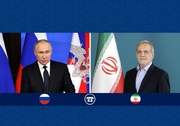
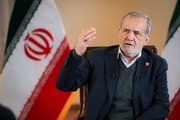

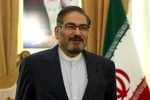


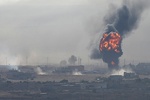
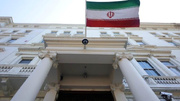






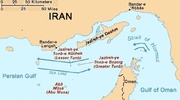



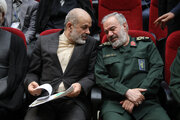
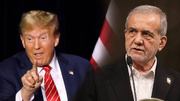


Your Comment